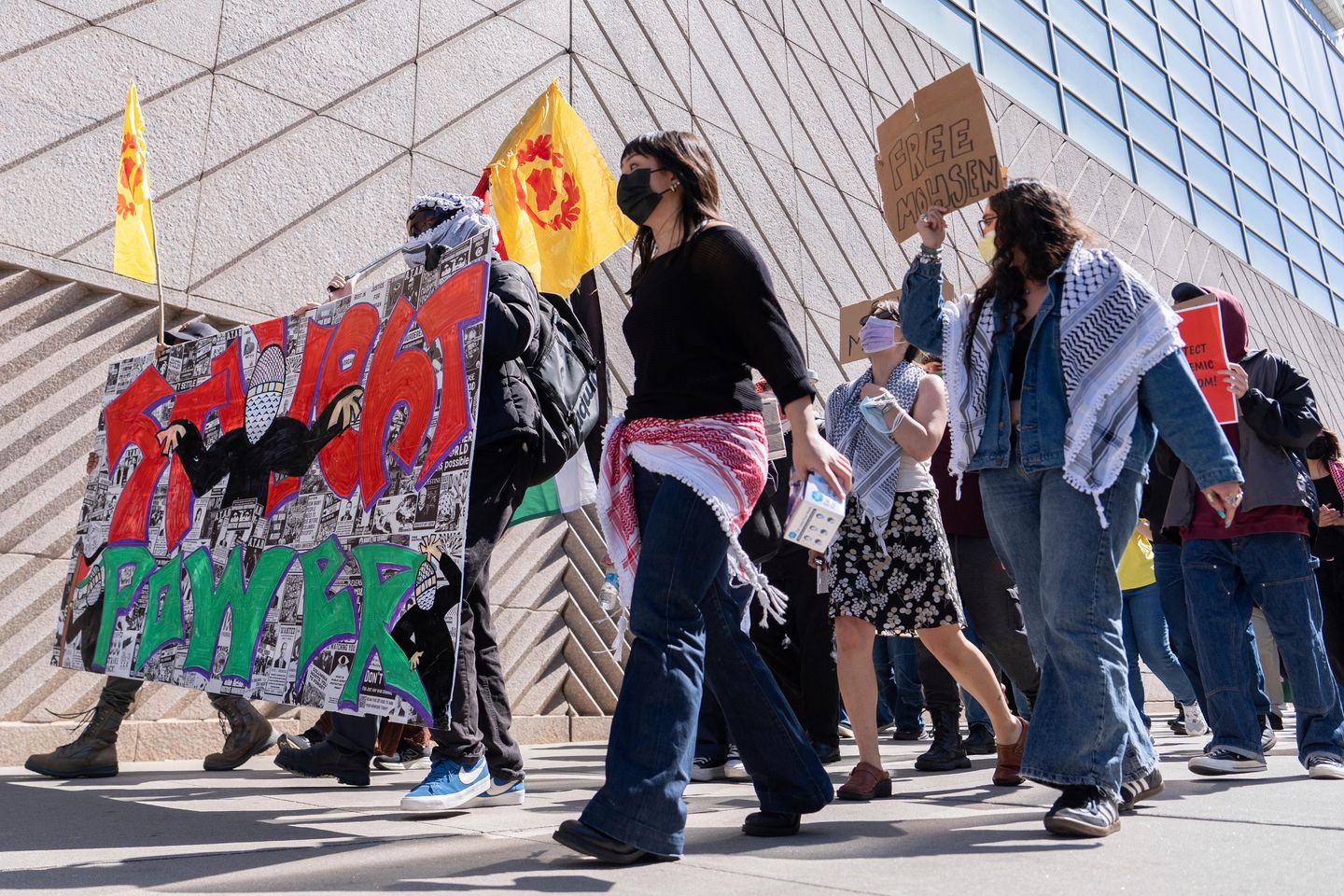
America’s colleges have received an “F” grade for their free speech climate in an annual watchdog report, as most students reject speakers from both sides of the political spectrum amid the Trump administration’s crackdowns.
The Foundation for Individual Rights and Expression awarded the failing mark on Tuesday to 166 out of 257 top schools based on the responses of 68,510 students to a wide-ranging survey this year.
The survey found that 72% of students at elite campuses such as Boston College, Columbia University and Indiana University said it was appropriate to shout down speakers on topics such as abortion and transgender policies.
The Philadelphia free speech group said it’s the first time in surveys dating back to 2020 that most students supported banning liberal speakers as well as conservative ones.
“This year, students largely opposed allowing any controversial campus speaker, no matter that speaker’s politics,” Greg Lukianoff, FIRE’s CEO, said in a statement. “Rather than hearing out and then responding to an ideological opponent, both liberal and conservative college students are retreating from the encounter entirely.”
The survey bills itself as the largest sampling of college students’ opinions on free speech ever recorded. Over 18 million students attended U.S. colleges this past spring.
According to FIRE, the Trump administration’s move to cut federal funding to universities that refuse to curb anti-Israel protests or end race-based admissions and hiring played the biggest role in shifting student opinion.
A record high of 1 in 3 students said it was acceptable to use violence to stop a campus speaker on at least some occasions, with a bump in conservative support leading the increase.
Josh Blackman, a constitutional law professor at South Texas College of Law in Houston, said White House crackdowns on higher education have eroded long-standing conservative support for airing edgy views.
“I think students are unfortunately taking the wrong lesson from the current administration,” Mr. Blackman said in an email. “They are more willing to reject altogether ideas they deem harmful, rather than expressing an open mind that their own views may not be the right ones.”
In a statement emailed to The Washington Times, the White House touted President Trump’s support for free speech, calling it arguably the most important issue facing Americans today.
“President Trump has cracked down on campus chaos and is restoring safety, free speech, and American values to universities across the nation,” said Liz Huston, a White House spokeswoman.
According to the FIRE report, that project may be incomplete. It found the Israeli-Palestinian conflict the hardest topic to discuss on campus, with 53% of students citing it.
That included 90% of students at Barnard College — a women’s liberal arts campus in New York City affiliated with the Ivy League’s Columbia University — who feared raising the topic openly.
Barnard placed dead last among the nation’s students for their “comfort expressing ideas” and their sense of “administrative support” for debating hot-button issues.
Columbia, which the Trump administration penalized for failing to crack down on complaints of antisemitism in campus protests against Israel, also earned an F from its students.
Jonathan Zimmerman, a professor of the history of education at the University of Pennsylvania, another Ivy League institution that flunked the student rankings, said the report confirms that free speech has worsened on campuses in President Trump’s second term.
“As the new FIRE report shows, right-wing students are as eager as their left-leaning peers to censor allegedly ’problematic’ speech,” Mr. Zimmerman said in an email. “And students across the political spectrum are biting their tongues, lest they incur the wrath of their opponents.”
On the positive side, the FIRE report found that students ranked private Claremont McKenna College in California as the best campus for free speech due to its stance of institutional neutrality toward politics.
Public Purdue University and the private University of Chicago came in second and third, respectively.
At the same time, Claremont McKenna received only a “B-” based on its student surveys. Purdue and the University of Chicago each earned a “C.”
Ilya Shapiro, a libertarian constitutional law scholar at the Manhattan Institute, said the vibe shift in U.S. political culture under Mr. Trump hasn’t changed the allergy of college administrators toward public debates.
“We have a long way to go to establish a healthy culture of open inquiry and civil discourse in higher education,” Mr. Shapiro said.
Most analysts reached for comment on Tuesday concurred. Some noted the FIRE report’s reference to the Trump administration removing 381 diversity-related book titles from the Naval Academy library.
“The fact of the matter is that America’s colleges are going as America is going,” said Omekongo Dibinga, a professor of intercultural communications affiliated with American University’s Antiracist Research and Policy Center. “We are scared to say the wrong thing in the wrong space so that we don’t become a hashtag or get in trouble.”
Tyrone C. Howard, a UCLA education professor specializing in racial equity, accused the White House of promoting the censorship it claims to oppose.
“The Trump administration is essentially sanctioning the silencing of voices, opinions and perspectives that are not aligned with the administration’s views,” Mr. Howard said.
But Peter Wood, president of the conservative National Association of Scholars, noted that most of the flagged Naval Academy books were later returned to the shelves.
“To the extent that FIRE built its storyline about conservative censorship on this one incident, there is less here than meets the eye,” Mr. Wood said in an email. “FIRE’s data shows that conservative students still reject shoutdowns and blocking entrances by much greater margins than liberal and moderate students, even though that margin has been slipping.”









